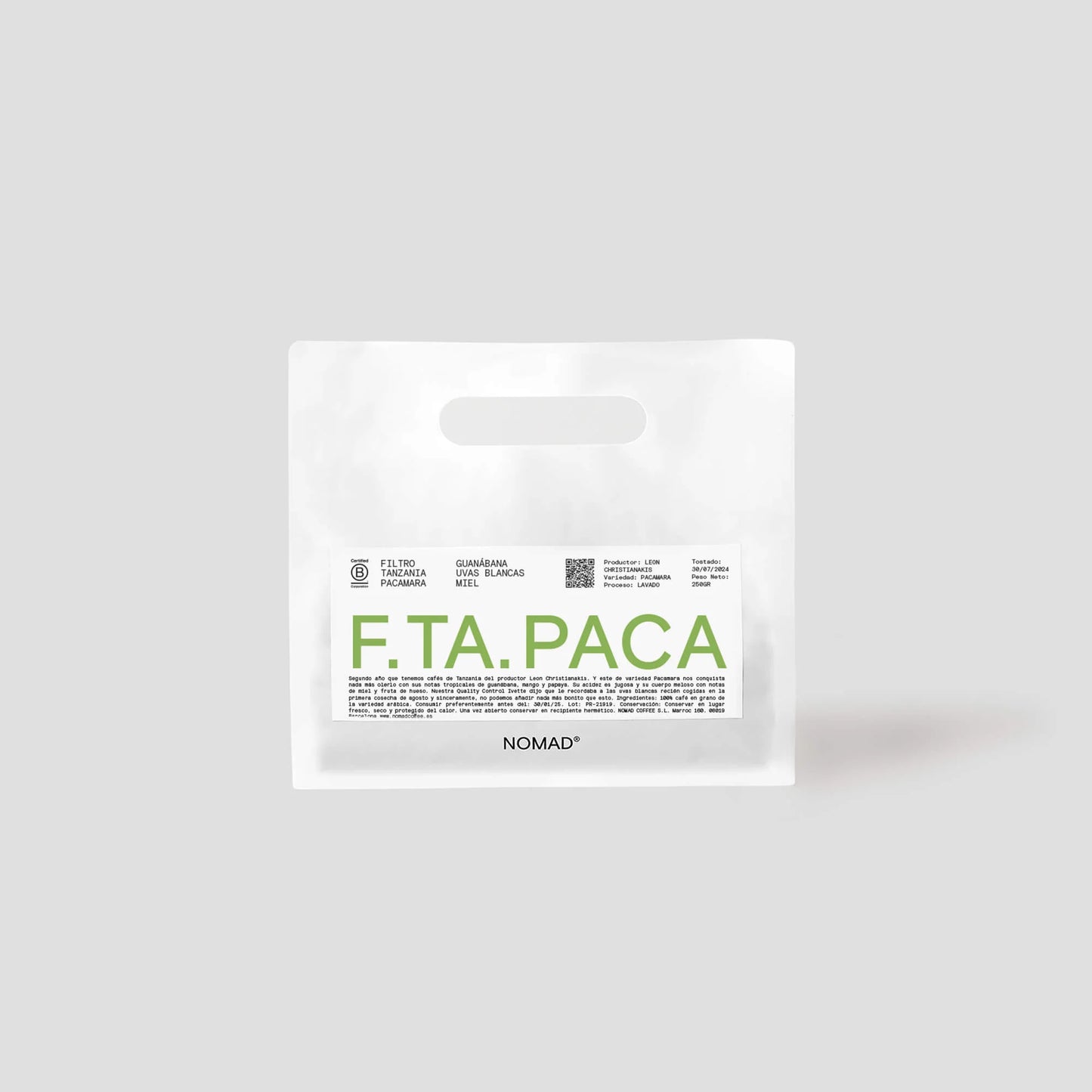NOMAD COFFEE
NOMAD - Acacia Hills Pacamara Filter | Tanzania - Washed - Pacamara
NOMAD - Acacia Hills Pacamara Filter | Tanzania - Washed - Pacamara
 Origin: Tanzania
Origin: Tanzania
 Tasting Notes: Soursop, White Grapes, Honey
Tasting Notes: Soursop, White Grapes, Honey
 Process: Washed
Process: Washed
 Varieties: Pacamara
Varieties: Pacamara
 Elevation: 1750 - 1950 masl
Elevation: 1750 - 1950 masl
 Harvest: November 2023
Harvest: November 2023
 Recommended Brew: Filter
Recommended Brew: Filter
 Roast Date:
Roast Date:
Couldn't load pickup availability
NOMAD Coffee Roasters is located in Barcelona, Spain
From NOMAD
This Acacia Hills Pacamara is a celebration of Tanzania's tropical richness. From the first scent, notes of soursop, mango and papaya emerge, intertwined with juicy acidity and a honeyed body, evoking honey and stone fruits. Our quality control manager, Ivette, commented that it reminded her of freshly harvested white grapes in August, an image that perfectly encapsulates the freshness and vibrancy of this cup.
Leon Christianakis, third generation of a Greek coffee family in Tanzania, acquired Acacia Hills Farm in 2007 with his wife Aideen and American Roaster Mark Stell. Located on the slopes of Mount Oldeani, near the Ngorongoro Crater, the farm benefits from an exceptional microclimate and rich volcanic soils, ideal for growing specialty coffee.Since its acquisition, Leon has transformed Acacia Hills into a benchmark of quality, implementing practices such as soil testing, managed shade and innovative processing methods. The 630-hectare farm, of which 115 hectares are dedicated to coffee, is home to varieties such as Bourbon, Kent, Geisha, SL28 and Pacamara. In addition, they have established a cupping laboratory on the farm, allowing for rigorous and continuous quality control.
Committed to the community, Leon and his team have developed infrastructure such as water supply systems for nearby villages, significantly improving the local quality of life.
Process
Ripe cherries are harvested by hand and pulped at the farm's Washed station. They are then subjected to open fermentation for 12 to 13 hours, carefully monitoring the level of fermentation. Once this process is completed, the coffee is washed and classified to separate the beans according to their density.
Drying is carried out on raised African beds for 13 to 16 days, depending on climatic conditions, until a moisture content of 12% is reached. The dried parchment is stored in a dry area prior to shipment.
Share



